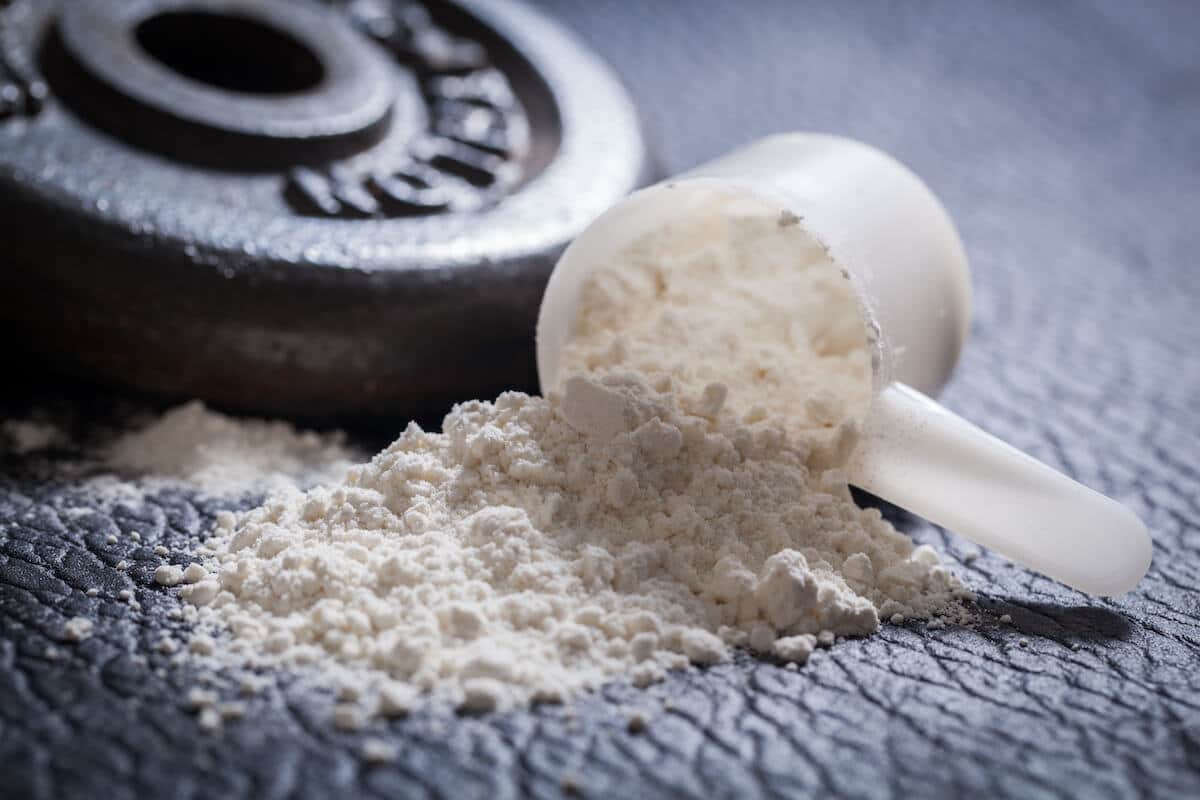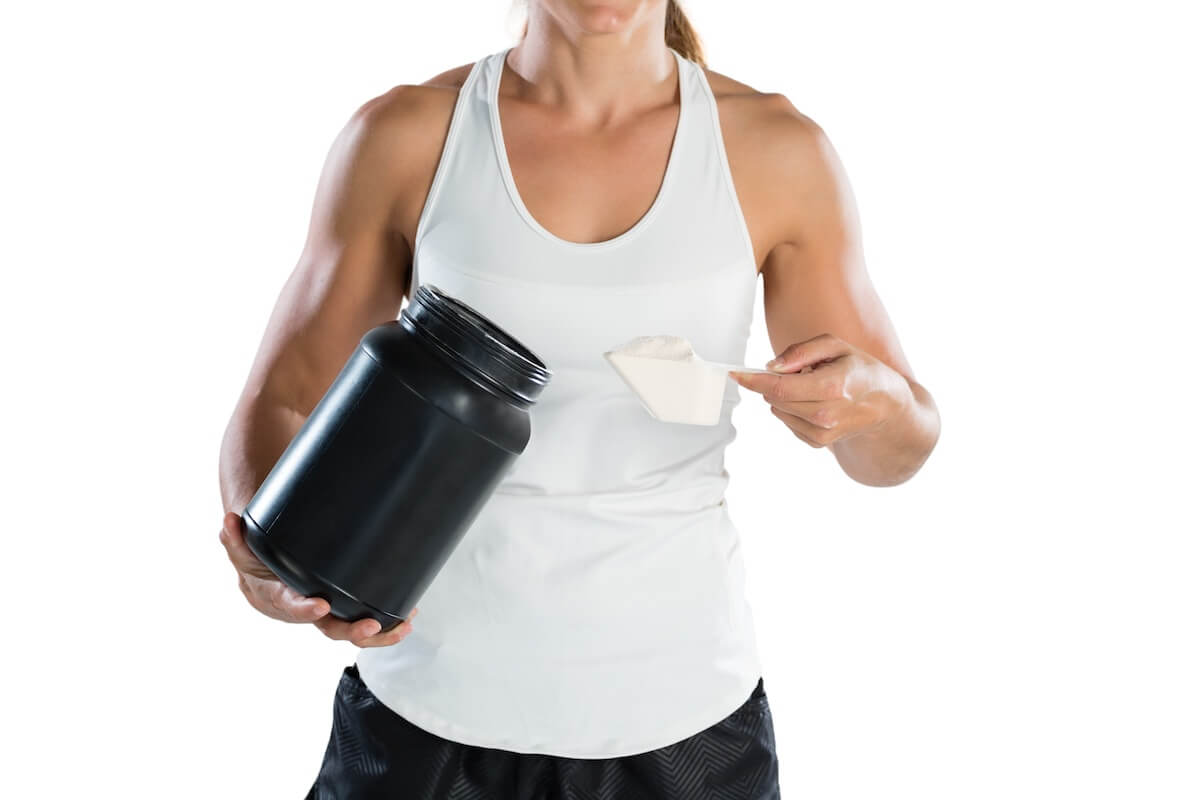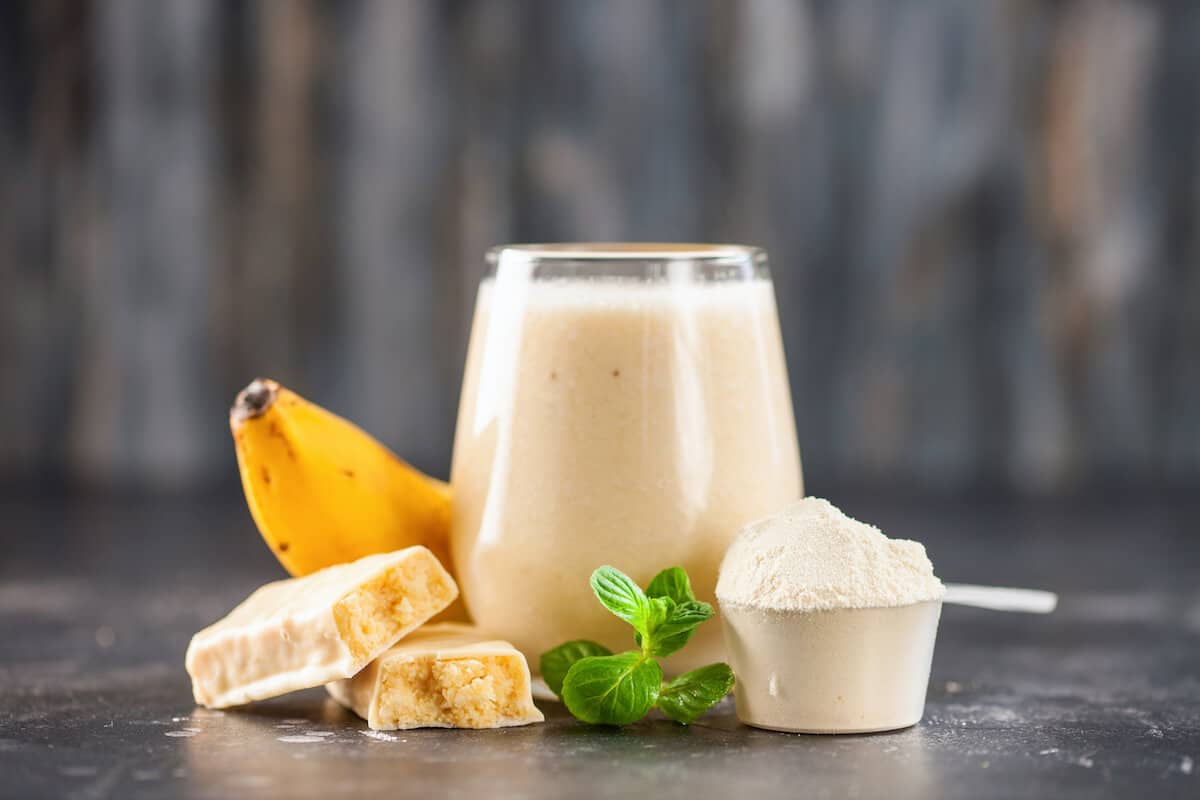
13 Oct Are BCAAs Worth It? How BCAAs Can Help You Meet Your Fitness Goals
Whether you’re an amateur gym-goer, competitive athlete, or professional bodybuilder, you’ve heard about the importance of branched-chain amino acids (BCAAs). When it comes to sports nutrition, BCAAs are often touted as a critical supplement to reach fitness goals. But they are expensive, so the question is: Are BCAAs worth it?
Let’s take a closer look at BCAAs, what they can do for you, and when to take BCAAs so you can answer the question for yourself.
What Are Branched-Chain Amino Acids (BCAAs)?
Amino acids are the building blocks of protein, forming the structure for all your organs, bones, and skeletal muscle, as well as many other parts of the body. Amino acids also provide energy, keep your immune system strong, and are involved in many processes that keep your body functioning.
The branched-chain amino acids are leucine, isoleucine, and valine. They’re basically amino acids with a twist — they have a branched chain in their molecular structure. BCAAs are classified as essential amino acids (EAAs) as your body can’t make them (unlike the non-essential amino acids), so you need to get them from your food.
How BCAAs Work
When you consume protein, your digestive system breaks it down into amino acids, which are then recombined in different ways through a process known as protein synthesis. These recombined proteins are then used by the different areas of the body.
While you need all the amino acids to build a healthy body, BCAAs have the greatest anabolic effect. In other words, they are the most important for building muscle tissue.
Of the three BCAAS, leucine is the most critical for muscle building as it activates the mTOR pathway, triggering muscle protein synthesis. Valine and isoleucine are more involved in producing energy and helping your muscles recover post-workout.
So are BCAAs worth it? The bottom line is that if you’re not getting enough BCAAs, it’s going to be a challenge for you to build and maintain muscle.
Sources of BCAAs

To give your body access to critical BCAAs, you must get enough protein — and it should come from high-quality protein sources.
The definition of “enough protein” depends on several factors including your age, activity level, and health and fitness goals. If you’re only moderately active, you need about 0.8 grams of protein per kilogram of body weight. If you’re an older adult starting to lose muscle mass (this is known as sarcopenia), you may need up to 1.5 grams of protein per kilogram. If you’re extremely active, an athlete, or a bodybuilder, you need at least 2 grams per kilogram, and very possibly more.
Some examples of high-protein foods from animal sources include:
- Beef
- Chicken
- Pork
- Fish
- Eggs
- Dairy
If you prefer your protein intake to come from plant sources, these include:
- Soy products
- Hemp seeds
- Quinoa
- Chia
- Buckwheat
Bear in mind that plant-based proteins often don’t contain the same levels of EAAs as animal proteins, so you may need to eat more.
Whether you’re involved in intense physical activity, losing muscle mass due to aging, or following a vegan diet, you may need to supplement your whole food protein intake with a protein supplement — particularly a BCAA supplement. If you are vegan, look for a vegan product as most BCAAs are animal-based.
Benefits of BCAA Supplements

Protein powders such as whey protein contain amino acids by default, including BCAAs, as do amino acid supplements. Still, the BCAAs are bound to other amino acids. If you take BCAAs separately though, your body can quickly digest and absorb them, and then send them off to your muscles. As such, to get the most benefit from BCAAs, you’re probably best off with a BCAA supplement.
BCAAs Help You Build Muscle
If your goal is to increase muscle mass, the best way to achieve that is through a combination of BCAAs and resistance training. As you work out, you cause tiny tears in the muscle tissue, which your body then repairs through muscle synthesis, creating stronger and bigger muscle in the process. When you use BCAAs, you’re giving your body the basic building blocks it needs to do this repair work.
BCAAS Give You Energy and Reduce Muscle Breakdown
Equally important, BCAA supplementation can help reduce catabolism or muscle breakdown. This happens when you’re in a fasted state, which means you haven’t eaten for a while. As a result, your body doesn’t have enough glucose to keep you going, especially during longer workouts like endurance exercise.
Your body stores glycogen in your muscle tissue, so when your energy levels start to run low and there aren’t enough amino acids available in your system, it starts to break down your muscle to access those amino acids — especially leucine — for fuel. However, if you use BCAAs to replace the energy you’re using up, you’re more likely to avoid protein breakdown and keep that muscle mass intact.
BCAAs Can Reduce Fatigue
When you’re aiming for an extended and intense workout, fatigue can be the enemy, forcing you to stop before you’re ready. The hormone that produces that feeling of fatigue is serotonin. And to produce serotonin, your body needs tryptophan. BCAAs compete with tryptophan for uptake to the brain, so if your workout supplement includes BCAAs, you can reduce fatigue and get an energy boost as well.
BCAAs Reduce Delayed-Onset Muscle Soreness
Delayed-onset muscle soreness (DOMS) will keep you out of the gym or off the track when you’d rather be working out. BCAA supplementation can help to reduce muscle damage and support muscle recovery.
BCAAs Support Body Composition
If body composition is important to you, your twin goals are probably muscle growth and fat loss — which may mean you’re restricting calories. The challenge with restricting calories for weight loss is that you want to lose body fat without sacrificing that all-important muscle gain. Also, lean muscle helps to speed up your metabolism, so the more you have, the faster you’re going to burn fat.
But as discussed, if your body doesn’t have enough energy, it will start breaking down your muscle for fuel.
BCAA supplementation can counteract that process. It supports your body during training, without adding extra calories, to help you lose fat while maintaining your muscle mass and strength.
So are BCAAs worth it? If you’d like to build and maintain lean muscle mass, reduce fatigue while training, and improve your post-workout recovery, the answer is probably yes.
When to Take BCAAs

Now that we’ve answered the question, “Are BCAAs worth it?” you may be wondering when to take BCAAs.
When to take BCAAs isn’t an easy question to answer as there are many opinions and the research is somewhat conflicting. Some experts say you should supplement post-workout, others maintain that pre-workout is best, and still others advocate intra-workout, depending on what you’re trying to achieve.
For example, if you want an energy boost (and especially if you haven’t had a meal recently), you might take your BCAA supplement about 30 minutes before a workout. If you want to reduce muscle breakdown and soreness, post-workout may be best. There’s also the question of whether you should take BCAAs every day or skip rest days.
All that said, the latest research seems to show that the time of day may not be so important. In fact, there is a fairly wide window of time for taking BCAAs, so you can probably take them throughout the day. It’s best to consult your physician before taking any supplement. Also, be sure to read the dosage instructions on the label and see what works for you.
When Not to Take a BCAA Supplement
BCAAs are safe for most people, but if you’re pregnant or breastfeeding, or you have Maple Syrup Urine Disease, it’s safest to avoid them.
How to Take Your BCAA Powder
Luckily, it’s simple enough to include BCAAs in your workout smoothie or add them to other protein or carbohydrate-based meals like oats, soups, or stews. You could also mix them into water, perhaps with some glutamine or creatine, to keep you hydrated while you work out.
How to Choose BCAAs
Before you spend your hard-earned money on a BCAA supplement, you’ll want to read the label carefully to check how many grams of BCAAs you’re actually getting and how much of that is leucine.
Research shows that you need at least 40 milligrams of leucine per kilogram of body weight each day if you’re moderately active, and probably around 50-55 milligrams if you’re extremely active. And since the ratio of leucine:isoleucine:valine most often recommended is 2:1:1, you’re looking at half that amount of isoleucine and valine.
In real terms, you probably need between 10 and 20 grams of BCAAs per day. Your BCAA supplement should probably give you around 6 grams of leucine and 3 grams each of isoleucine and valine per dose, taken at least twice a day.
Once you’ve checked how much you’re getting, look for other ingredients that you don’t want, such as added sugar, artificial colors or sweeteners, preservatives, or fillers like soy or gluten.
Your best bet is to choose a high-quality brand that’s independently tested, such as Ingredient Optimized ioBCAA. ioBCAA has been proven to be more bioavailable than non-optimized BCAAs so you’re getting far more bang for your buck. Look out for ioBCAA partner products in-store or online soon.
Are BCAAs Worth It?
BCAA supplements can help you gain lean muscle while burning fat. They also reduce fatigue while you’re working out, reduce muscle soreness, and help your body recover faster afterward.
You will get some BCAAs from a protein supplement like whey, but BCAAs will be most quickly and efficiently available to your body if you take a high-quality BCAA supplement. Make sure you choose one made by a brand you can trust and give your body the best it can get.


